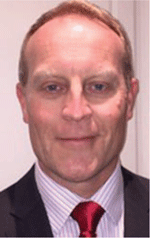NORM inventory forecast for Australian offshore oil and gas decommissioned assets and radioactive waste disposal pathways
Scott McKay A , Stuart A. Higgins A C and Peter Baker BA Curtin University, GPO Box U1987, Perth, WA 6824, Australia.
B Wood, Level 1, 240 St Georges Terrace, Perth, WA 6000, Australia.
C Corresponding author. Email: stuart.higgins@curtin.edu.au
The APPEA Journal 60(1) 19-33 https://doi.org/10.1071/AJ19159
Submitted: 6 December 2019 Accepted: 20 February 2020 Published: 15 May 2020
Abstract
This research establishes a decommissioning timeline for the existing oil and gas facilities across all of the Australian offshore oil and gas production basins. Minimal data exist in the public domain to estimate these decommissioning timelines and, more importantly, the significant waste volumes generated; including potentially hazardous wastes such as naturally occurring radioactive material (NORM). At this time there is no approved onshore radioactive waste disposal pathway in Australia to accommodate this material. Applying an estimation methodology, based on Norwegian decommissioning data with regional activity factors, allows a NORM waste forecast to be established for the decommissioning of Australian oil and gas offshore infrastructure. The total NORM disposal burden is estimated to be in the range of 223–1674 tonnes for decommissioning activity to 2060, with over 68% of this material generated between 2018 and 2025. Due to the sparsity of public domain data this forecast is deemed to be uncertain and excludes the NORM contamination anticipated to be present in subsea export pipelines, trunklines and well production tubing. Current regulations governing the categorisation and disposal of radioactive wastes across Australia are complex and regionally dependent. This regional variation makes the implementation of a national radioactive waste disposal facility more difficult, and encourages the export of radioactive wastes overseas for final disposal. Exporting of radioactive wastes potentially presents a higher risk compared with in-country disposal and is likely not an effective long-term proposition. A comprehensive NORM data collection and quantification assessment programme, spanning all onshore and offshore oil and gas infrastructure, needs to implemented to drive and verify a NORM waste management strategy for the wave of facility decommissioning projects that are fast approaching.
Keywords: activity threshold, ARPANSA, decommissioning, exempt waste, IAEA, national radioactive waste disposal facility, naturally occurring radioactive materials, NORM activity levels, NORM contamination, NORM decontamination and processing, NORM storage facility, NORM waste disposal pathways.

Scott McKay has over 20 years of oil and gas industry experience, including 14 years offshore in the UK and Norwegian sectors and 8 years in Australian LNG. He has worked with operators, engineering consultancies and specialist machinery and equipment providers across both brownfield and greenfield projects. He studied a Bachelors of Mechanical Engineering at the Robert Gordon University, Aberdeen and recently completed a Masters of Subsea Engineering from Curtin University, Perth. He currently works for Chevron Australia as Rotating Equipment Technical Team Lead. |

Stuart Higgins graduated from Monash University in 1988 with a BEng(Hon) in Mechanical Engineering and was also awarded a PhD in 2000 from Monash University. Stuart’s professional career has spanned 25+ years with oil and gas operator-specific field development expertise, spanning appraise, select, FEED, execute, operate and decommissioning phases covering multiple asset types and international regions. Developments have included subsea, pipeline, fixed and floating deep water greenfield and brownfield assets from Mauritania, Mediterranean, North West Shelf, Browse basin and the Gulf of Mexico. Joining Curtin University in 2015 as an Associate Professor, he has managed and delivered the Master of Subsea Engineering and MSc (Global Subsea) programs and is the Curtin Oil and Gas Innovation Centre portfolio manager – delivering industry-based research currently focusing on well decommissioning. He is a member of SPE, a committee member of SUT Perth and board member of Subsea Energy Australia (SEA). |

Peter Baker is a graduate of the University of the West of England with a BSc Mechanical Engineering. Peter is an experienced Project and Technical Manager with over 30 years in the oil and gas industry with offshore experience covering deep and shallow water projects in Australia, New Zealand, SE Asia, the Gulf of Mexico, UK North Sea, Norwegian Sea, offshore West Ireland and the Egyptian Mediterranean. Peter has a full range of technical engineering experience and has been involved in concept, front end and detail design, manufacture, inspection, assembly, test, FAT, EFAT, SIT, transport, installation, commissioning, setting to work and operational support roles. He is currently employed by Wood PLC as Principal Controls Engineer and is a Fellow of the Institution of Mechanical Engineers (FIMechE) and Chartered Engineer (CEng). |
References
Alghamdi, A. A., and Radwan, A. M. (2005). Decommissioning of offshore structures: challenges and solutions. In ‘International Conference on Computational Methods in Marine Engineering, Barcelona, MARINE 2005’ (Eds P. Bergan, J. Garcia, E. Onate, and T. Kvamsdal) (CIMNE: Barcelona).ARPANSA (2008). Safety guide: management of naturally occurring radioactive material (NORM). Australian Radiation Protection and Nuclear Safety Agency. Available at http://www.arpansa.gov.au/sites/default/files/legacy/pubs/rps/rps15.pdf [verified 20 February 2020].
ARPANSA (2010). Safety guide: classification of radioactive waste. Australian Radiation Protection and Nuclear Safety Agency. Available at https://www.arpansa.gov.au/sites/default/files/legacy/pubs/rps/rps20.pdf [verified 20 February 2020].
Askew, P., Bourdeau, C., Volkenborn, A., Lea-Cox, A., and Charan, A. (2016). Managing abandonment in Australia. In ‘SPE Asia Pacific Oil & Gas Conference and Exhibition, Perth, Australia.’ Society of Petroleum Engineers.
Australian Government (2018). Australian Radioactive Waste Management Framework April 2018. Edited by Innovation and Science Department of Industry, Canberra. Available at https://www.industry.gov.au/data-and-publications/australian-radioactive-waste-management-framework [verified 20 February 2020].
Bureau of Ocean Energy Management (2018). BOEM Data Centre. Available at https://www.data.boem.gov/ [verified 2 September 2019].
Clyne, I., and Jackson, N. (2014). Abandonment of 19 subsea wells in the Jabiru/Challis Fields. In ‘IADC/SPE Asia Pacific Drilling Technology Conference, Bangkok, Thailand.’ Society of Petroleum Engineers.
Crouch, D. (2017). Oil and gas naturally occurring radioactive materials (NORM) - comparison of Australian and other first world oil & gas industry practices. In ‘Australian Oil and Gas Expo, Perth.’ Available at https://aogexpo.com.au/wp-content/uploads/2017/03/CROUCH-Dean-Comparison-of-Australian-and-Other-First-World-Oil-......pdf [verified 20 February 2020].
DEFRA (2007). Policy for the long term management of solid low level radioactive waste in the United Kingdom. Department for Environment, Food and Rural Affairs. Available at https://assets.publishing.service.gov.uk/government/uploads/system/uploads/attachment_data/file/254393/Low_level_waste_policy.pdf [verified 20 February 2020].
Dimitrovski, L. (2005). Report on the status of regulations for NORM/TENORM in Australia. Japanese Journal of Health Physics 40, 79–86.
| Report on the status of regulations for NORM/TENORM in Australia.Crossref | GoogleScholarGoogle Scholar |
Fletcher, P. A., Cornette, C. A., Sustala, D. R., and Dolence, T. W. (1995). Preparation of naturally occurring radioactive material (NORM) for hydraulic fracturing disposal: a case study. In ‘SPE/EPA Exploration and Production Environmental Conference, Houston, Texas.’ Society of Petroleum Engineers.
Genesis Oil and Gas Consultants. (2005). Identification and assessment of alternative disposal options for radioactive oilfield wastes. Scotland and Northern Ireland Forum for Environmental Research (SNIFFER), January, 2005.
Geoscience Australia (2018). Petroleum Wells. Available at http://dbforms.ga.gov.au/www/npm.well.search [verified 23 September 2020].
Geoscience Australia and BREE (2014). Australian energy resource assessment. Edited by Department of Industry, Geoscience Australia and Bureau of Resources and Energy Economics (BREE), Canberra: Geoscience Australia.
IAEA (2010). ‘Radiation Protection and the Management of Radioactive Wastes in the Oil and Gas Industry.’ (International Atomic Energy Agency: Vienna, Austria.)
INPEX (2017). World’s largest semi-submersible platform safely moored in Ichthys Field. 22 June 2017. Available at http://www.inpex.com.au/news-media/news/world-s-largest-semi-submersible-platform-safely-moored-in-ichthys-field/ [verified 23 September 2019].
International Association of Oil & Gas Producers. (2008). Guidelines for the management of naturally occurring radioactive material (NORM) in the oil and gas industry. Report 412. September 2008.
Júnior, S. L. A., and Souza, R. (2017). Best Practices for decommissioning of floating production systems FPS. In ‘OTC Brasil, Rio de Janeiro, Brazil.’ Offshore Technology Conference.
Knudsen, S. (2011). Decommissioning concrete structures - environmental and safety challenges. In ‘SPE European Health, Safety and Environmental Conference in Oil and Gas Exploration and Production, Vienna, Austria.’ Society of Petroleum Engineers.
Lowe, D. J. (1993). NORM cleaning and disposal using closed-loop hydroblasting or solvent bath and underground injection system. In ‘SPE/EPA Exploration and Production Environmental Conference, San Antonio, Texas.’ Society of Petroleum Engineers.
Lysebo, I., and Strand, T. (1997). NORM in oil production in Norway. In ‘International Symposium on Radiological Problems with Natural Radioactivity in the Non-Nuclear Industry, 8–10 September 1997, Amsterdam, The Netherlands.’ (KEMA: Arnhem, The Netherlands).
Ministry of Petroleum and Energy (2014). Facts 2014 - the Norwegian petroleum sector. Available at https://www.regjeringen.no/globalassets/upload/oed/pdf_filer_2/faktaheftet/fakta2014og/facts_2014_nett_.pdf [verified 20 February 2020].
Norwegian Government (2011). Report: decommissioning of offshore installations. Edited by Climate and Pollution Agency, Oslo. Available at https://tema.miljodirektoratet.no/old/klif/publikasjoner/2761/ta2761.pdf [verified 20 February 2020].
Norwegian Radiation Protection Agency (2008). Repository for radioactive waste from petroleum operations. Edited by Norwegian Radiation Protection Agency.
Oceaneering (2017). Subsea NORM inspection tool. Available at https://www.oceaneering.com/datasheets/ST&R-Subsea-NORM-Inspection-Tool.pdf [verified 9 October 2019].
Oil & Gas UK (2017). Decommissioning Insight 2017. Available at https://cld.bz/BoPAqso/#zoom=z [verified 20 February 2020].
Oram, M. E. (2011). Frigg decommissioning: onshore disposal. In ‘Offshore Technology Conference, Houston, Texas, USA.’ Offshore Technology Conference.
Phipps, S. (2012). Gravity base structures: storage cell conundrum. Decomworld. Available at http://analysis.decomworld.com/projects-and-technologies/gravity-base-structures-storage-cell-conundrum [verified 20 February 2020].
Quadrant Energy (2017). Varanus Island Gas Hub. January 2017. Available at https://www.quadrantenergy.com.au/wp-content/uploads/2016/12/Varanus-Island-Facilities-Factsheet-January-2017.pdf [verified 23 September 2019].
Radiation Health and Safety Advisory Council. (2005). Naturally occurring radioactive material (NORM) in Australia: issues for discussion. Report prepared by the Radiation Health & Safety Advisory Council for the CEO of ARPANSA.
Reed, A. C., Mathews, J. L., Bruno, M. S., and Olmstead, S. E. (2001). Safe disposal of one million barrels of NORM in Louisiana through slurry fracture injection. In ‘SPE Annual Technical Conference and Exhibition, New Orleans, Louisiana.’ Society of Petroleum Engineers.
Scottish Government (2014). Detailed overview of NORM waste management in each of the UK NORM industry sectors. Available at https://www2.gov.scot/resource/0044/00443257.pdf [verified 20 February 2020].
Shell UK Limited (2017). Brent decommissioning programmes environmental statement. Shell UK Limited. 2017. Brent Field Decommissioning Programmes.
Smith, A. L. (2010). NORM the lessons to be learnt, new challenges and innovative thinking with decommissioning and radioactive waste. In ‘SPE International Conference on Health, Safety and Environment in Oil and Gas Exploration and Production, Rio de Janeiro, Brazil.’ Society of Petroleum Engineers.
Smith, A. L. (2011). First correlation of NORM with a specific geological hypothesis. In ‘SPE European Health, Safety and Environmental Conference in Oil and Gas Exploration and Production, Vienna, Austria.’ Society of Petroleum Engineers.
Stokes, A. W. (2014). Decommissioning costs can be reduced. In ‘Offshore Technology Conference, Houston, Texas.’ Offshore Technology Conference.
Tellus Holdings Ltd (2016). The Sandy Ridge Proposal. Available at http://www.tellusholdings.com/pdf/2016/sr-fact-sheets/TSR-5-40-20-05-DC-WD-The- Sandy-Ridge-Proposal-Fact-Sheet_v1_20–11–2016.pdf [verified 7 October 2019].
Tellus Holdings Ltd (2017). What is a geological repository? Available at https://www.tellusholdings.com/pdf/2017/ch-fact-sheets/CH-Fact-Sheet-05- Geological-Repository-2017-Feb-24.pdf [verified 8 October 2019].
USGS (1999). Naturally occurring radioactive materials (NORM) in produced water and oil-field equipment — an issue for the energy industry. Edited by US Department of the Interior. Available at https://pubs.er.usgs.gov/publication/fs14299 [verified 20 February 2020].
Valeur, J. R. (2011). Environmental impacts of NORM disposal–with emphasis on discharges to sea. SPE Projects, Facilities & Construction 6, 124–131.
| Environmental impacts of NORM disposal–with emphasis on discharges to sea.Crossref | GoogleScholarGoogle Scholar |
Varskog, P., and Gellermann, R. (2011). Identification, handling and the disposal of NORM in the Norwegian petroleum industry. In ‘Naturally Occurring Radioactive Material (NORM VI) Proceedings of an International Symposium Marrakesh, Morocco 22 March 2010.’ International Atomic Energy Agency.
White, C., and Goodman, C. (2010). The scrap heap challenge - waste management for decommissioning one of the largest fixed steel jacket platforms in the North Sea. In ‘SPE International Conference on Health, Safety and Environment in Oil and Gas Exploration and Production, Rio de Janeiro, Brazil.’ Society of Petroleum Engineers.


